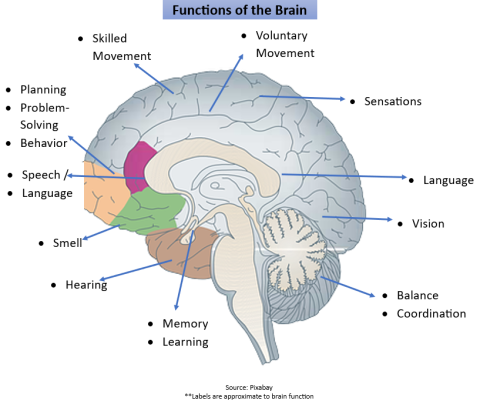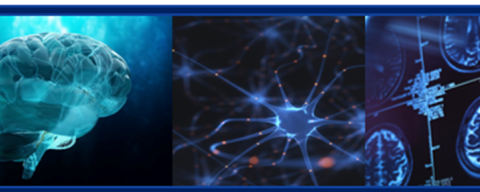Boost Your Brain
Michele M. Kroll, Ph.D., Behavioral Health and Well-Being Field Specialist
There are 34 million U.S. adults aged 65 and over and that number is growing. [1] By 2030, 1 in 5 will be 65 and older. New Hampshire (NH) ranks as the second highest median age in the nation (after Maine), with approximately 20% of the population over the age of 60. NH is experiencing a rapid increase in the number of older adults, expected to double over the next 20 years. [2] Mental health in older adults and how it affects brain health is worth addressing. Studies have shown that people with anxiety and depression have a higher risk for dementia. [3]
Mental health and physical health are closely linked. For example, the World Health Organization reported that adults with heart disease have higher rates of depression than those who don’t have heart disease. [4] If someone is experiencing mental health challenges then their physical health is probably suffering and vice versa.
Emotions are an important part of being human. Stress is a term that we use to describe a wide range of emotions. Not all stress is bad but how our bodies react to stress has powerful effects on the body and the brain. Over time when stress becomes chronic it can negatively impact our physical and mental health and overall well-being. Brain health is physical and it affects our ability to think, reason, plan and remember.
The fight or flight state is how our body physically responds to stress. Multiple systems in the body and brain are activated. Adrenaline and cortisol are released to activate the fight or flight response which stimulates the limbic system that is part of the emotional brain. This helps us process information to survive perceived life-threatening situations or when we feel threatened.

How the brain works:
Brain volume shrinks with age especially the areas that control cognitive functions such as memory, learning and emotions. Although some of these changes are a normal part of the aging process things like memory recall can be frustrating, physical brain changes can lead to cognitive decline and mental health disorders. [5] As we age our sleep patterns can become disrupted and lead to increased memory deficits and mood disorders. According to a sleep study report at least 50% of adults reported poor sleep quality. [6]
Stress can impair memory because blood flow is diverted from the frontal cortex or logical part of the brain to the emotional brain. When this happens the brain works hard to remember what it thinks is important to the situation. It distracts our attention away from things we want to remember. The details remembered may not be what we wanted to remember. Have you ever been at a loss for words, or searching for that phrase on the tip of your tongue in a stressful moment? This is an example of how stress can distract our attention from what we want to say or remember at a certain point in time. The brain as well as the body has short-term physical effects that can worsen or turn into chronic conditions.
Short term physical effects:
- Increased heart rate
- Sweat
- Tense muscles
- Goose bumps
- Digestion stops
- Respiration increases
- Blood vessels dilate
- Eyes widen
What can we do?
- Relaxation responses will bring the stress response down so that the body and brain can regain functioning at their regular capacity. Here are some ideas for relaxation responses to try:
- Yoga
- Walking
- Breathing Techniques
- Reading
- Listening to Music
- Exercise
- Mindful Meditation
- Learn more about our programs and resources:
Brain health UNH Extension Aging Well Programs
Mental health UNH Extension Mental Health First Aid
Sources:
[1] Depression in Older Adults: More Facts. Mental Health America. Accessed 5/15/2023.
[2] John W McCormack Graduate School of Policy and Global Studies. Healthy Aging Data Report, NH. 2019. NH Healthy Aging Data Report Accessed 01/15/2023.
[3] Brain Health and Alzheimer’s Research Accessed 5/10/2023.
[4] Seniors and Mental Health. Pan American Health Organization / World Health Organization. Accessed 5/15/2023.
[5] Forbes- Mental Health and Senior Living Accessed 5/10/2023.
[6] Sleep Disorders. NAMI. Accessed 5/15/2023.
Check Out Our New Health & Well-Being Page
Our specialists help create healthy people and healthy places in New Hampshire.
Featured LINK
Mental Health Resources for New Hampshire - a printable county-specific guide to help New Hampshire residents find local, state, and national mental health resources.

